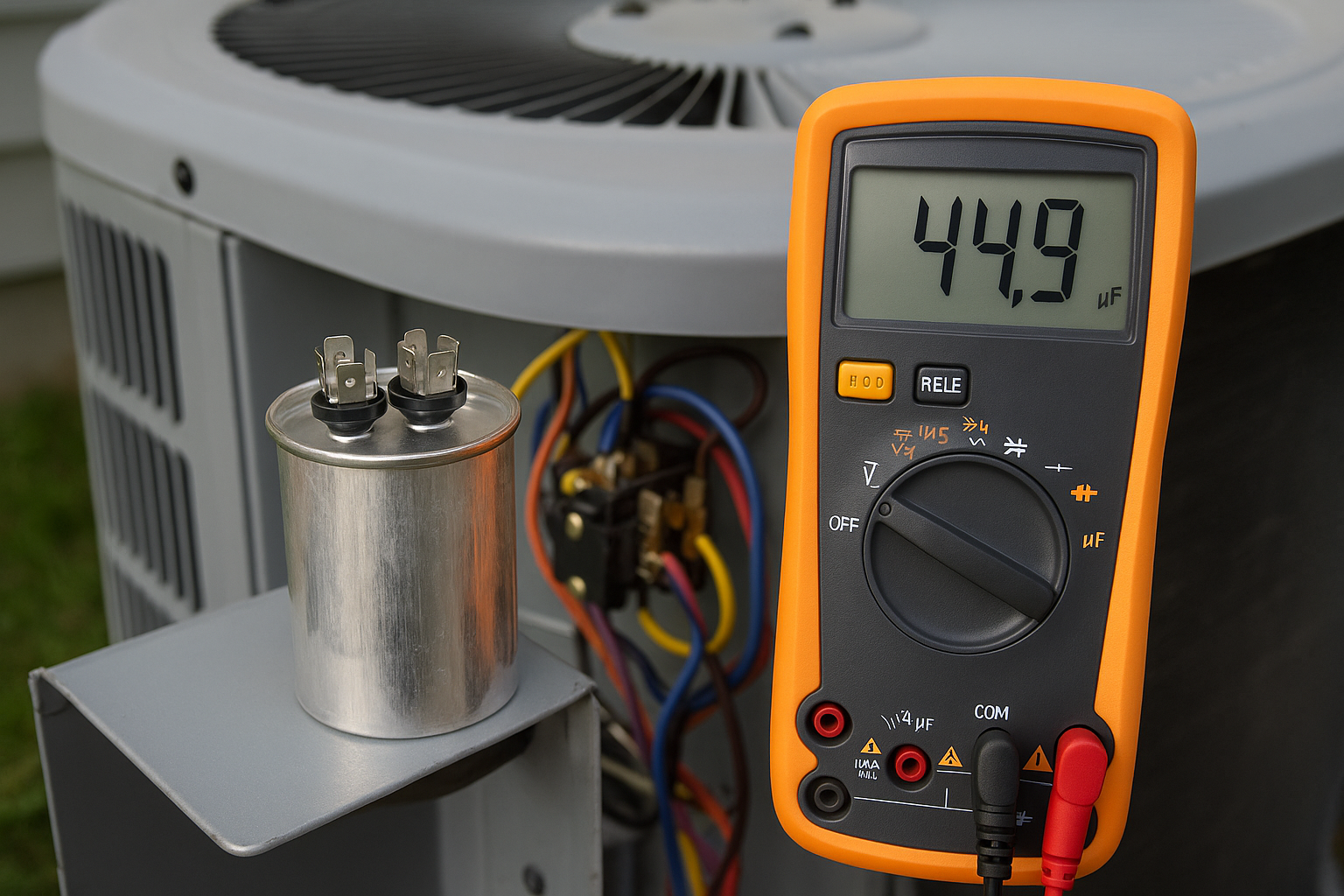If your air conditioner suddenly stops cooling and all you hear is a faint humming sound, chances are your dual run capacitor may be the culprit. In this post, we’ll break down how to test a dual run capacitor with a multimeter—step by step—just like in the video tutorial linked below. This simple test can help you avoid unnecessary repair bills and get your AC back in action quickly.
What Is a Dual Run Capacitor?
A dual run capacitor is a key component inside your AC’s outdoor unit. It powers both the fan motor and the compressor. When this part fails, your unit might hum but not start, or it may short cycle and fail to cool your home properly.
Tools You’ll Need:
- Digital multimeter with microfarad (µF) measurement
- Insulated screwdriver
- Safety gloves
- Screwdriver or nut driver to open the panel
Step-by-Step Guide to Testing Your Capacitor:
- Turn Off the Power
Safety is key. Disconnect the power to your AC unit at the breaker panel and/or outside disconnect box. - Open the Access Panel
Unscrew the side panel of your AC’s outdoor unit to reveal the control board and capacitor. - Discharge the Capacitor
Even when the unit is off, the capacitor may hold a charge. Use an insulated screwdriver to bridge the terminals and safely discharge it. - Identify the Terminals
Capacitors are labeled with three terminals: HERM (compressor), FAN, and C (common). Take a photo so you can reconnect wires correctly. - Set Your Multimeter to Capacitance (µF)
Disconnect the wires from the capacitor. Touch the meter probes to the C and HERM terminals, then C and FAN. - Compare to Rating
The reading should be within ±6% of the labeled value (e.g., 45/5 µF). If your readings are far off, it’s time to replace the capacitor.
Final Thoughts
Testing your AC capacitor with a multimeter is a straightforward task that can save you from sweating it out—or paying big for a technician. Capacitors are inexpensive, and swapping them out is one of the most common AC repairs you can safely DIY.
If you’re a visual learner, be sure to check out the video tutorial here, where the process is demonstrated clearly and simply.

